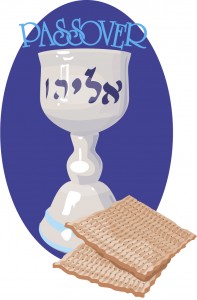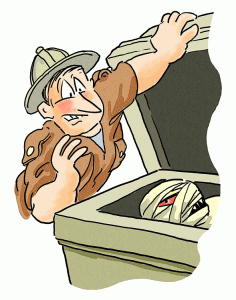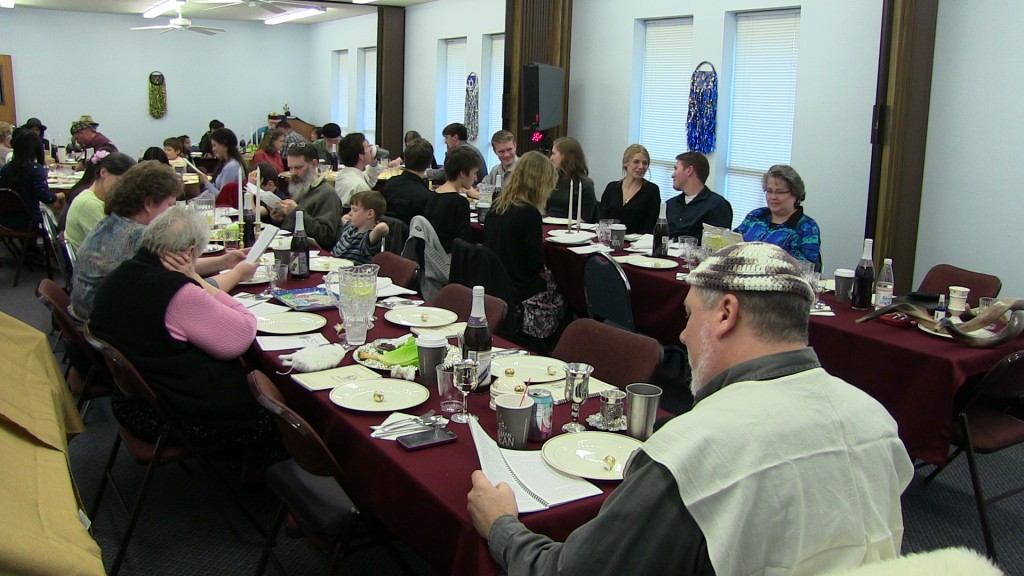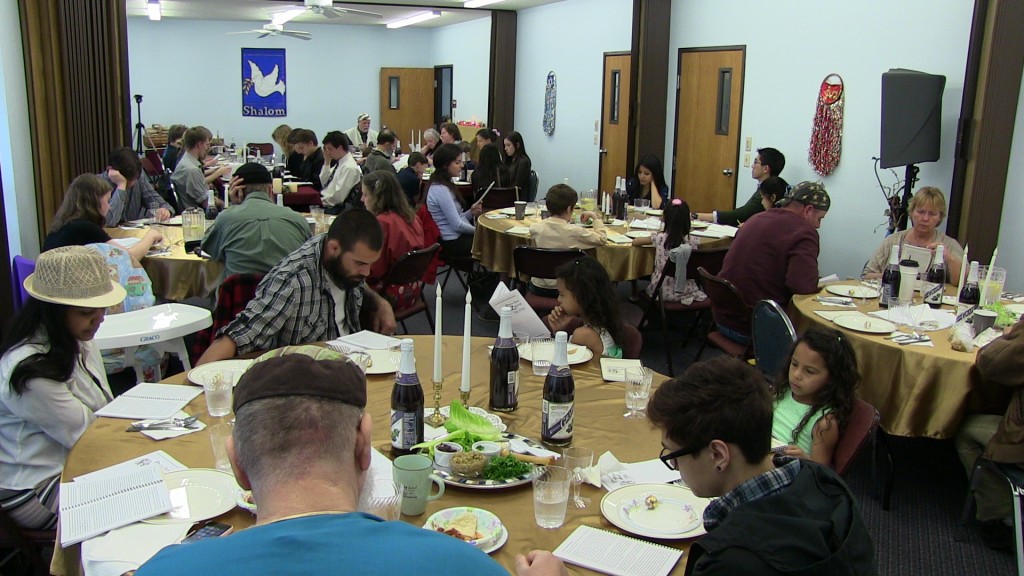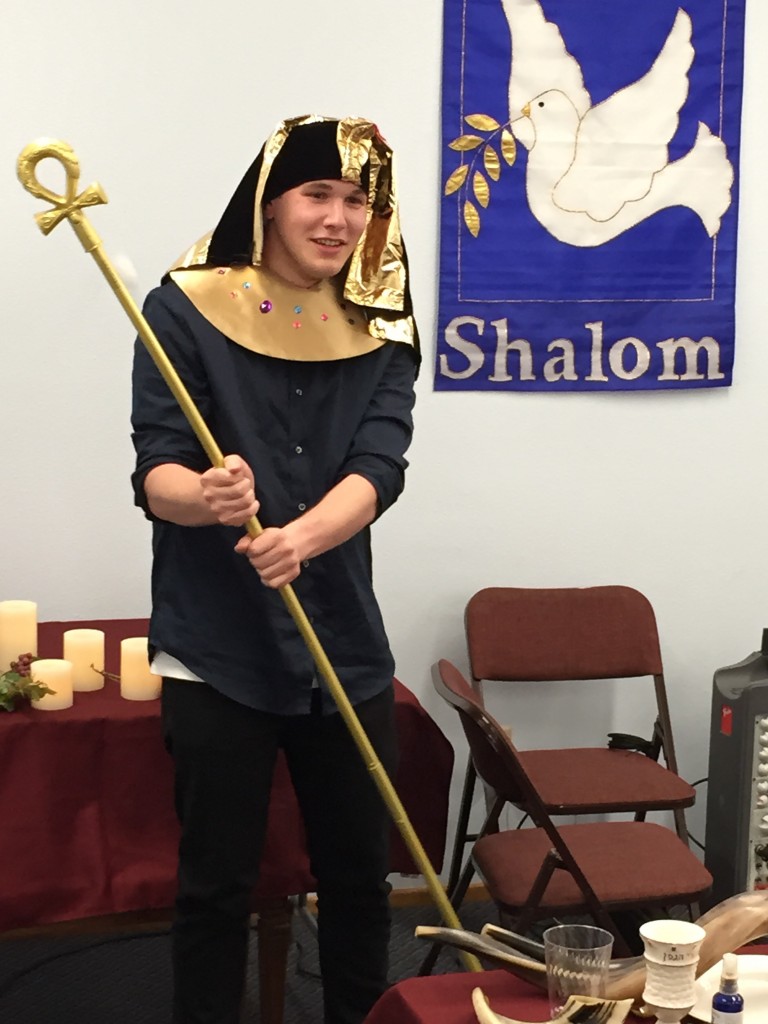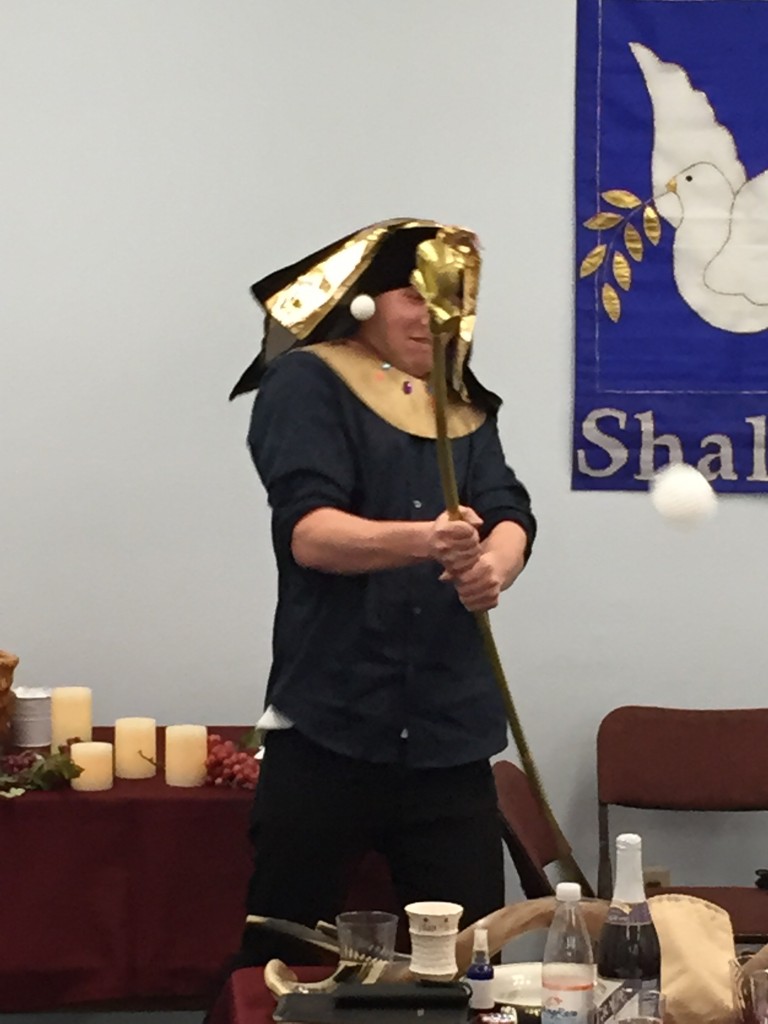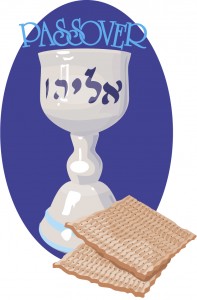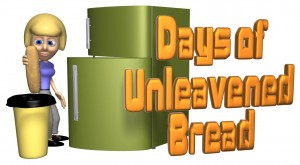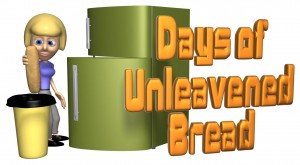1 Corinthians 11:23, This is my body. We are sanctified through the offering of the body of Yeshua (Heb 10:10).When we eat the bread of communion, we are “eating” Yeshua who is the incarnate and Living Torah Word of Elohim (John 1:14). We are announcing that Yeshua is the spiritual bread of life from heaven that leads to eternal life (John 6:48–51), and we are announcing our desire to live by the totality of his Word (Matt 4:4).
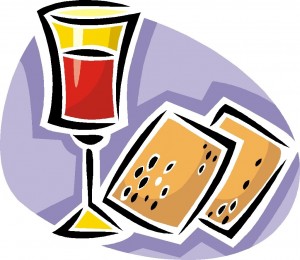
The bread symbolizing the body of Yeshua was unleavened, which is a picture of Yeshua’s sinless life. By eating this bread, we declare our faith in his sinless life by which he was able to pay for our sins. We also declare our identification with his sinlessness as an example for us to follow.
Yeshua took the unleavened bread and broke it signifying our deliverance from our sin nature by the breaking or death of his sinless body. The unleavened bread broken during the Passover meal speaks of our deliverance from the power of sin by the death of our old man. The rite of baptism is a picture of this (Rom 6:4–13). This paves the way for us to live a sanctified (sin-free) life.
We become unleavened or sinless (known as sanctification) because Yeshua our Passover Lamb was sacrificed for us (1 Cor 5:7). Our body of sin died with Yeshua when we were baptized making us unleavened (or sanctified, Rom 6:6). Let us therefore live in accordance with the new man, or new spiritual creation we have become through Yeshua (1 Cor 5:8; 2 Cor 5:17; Gal 2:20). When we eat the unleavened bread at the communion part of the Passover service, we remember that we are sanctified by grace and that the power of sin(or Torahlessness, see 1 John 3:4 cp. John 14:15) has been broken in our lives.
In the first Passover, the children of Israel were delivered from the penalty of their sins by the blood of the lamb on the door. But when they ate the unleavened bread, this speaks of their being delivered from their slavery to sin and oppression in Egypt. They were now to leave Egypt (a spiritual picture of the old man and life) and go toward the Promised Land (a spiritual picture of the new man) taking with them, on their knees, the dough of the unleavened bread. This illustrates the fact that they were to walk in the newness of a spiritually unleavened or sanctified life. When we eat the bread of communion, we memorialize the events surrounding the Exodus, and recognize the present reality of freedom from sin in our own lives.
1 Corinthians 11:25, My blood. By the blood of Yeshua we are redeemed, liberated or released from the bondage of sin (Matt 26:28; Rom 3:25; Eph 1:17; Col 1:14; Heb 9:22; 1 Pet 1:18; Rev 5:9) and from sin’s death penalty claim on us (Rom 6:23; Ezek 18:4) brought on by our disobedience to YHVH’s instructions in righteousness, the Torah (which defines sin, 1 John 3:4). His blood also sanctifies (or separates, Heb 9:13–14; 13:12) us from past sin (Rom 3:25) or Torahlessness allowing us to become a new spiritual creation before YHVH (2 Cor 5:17; Gal 2:20) in order to become a pure and special people who are zealous for good works (Tit 23:14), who will serve YHVH in righteousness, which is the good works of the Torah (Ps 119:172).



